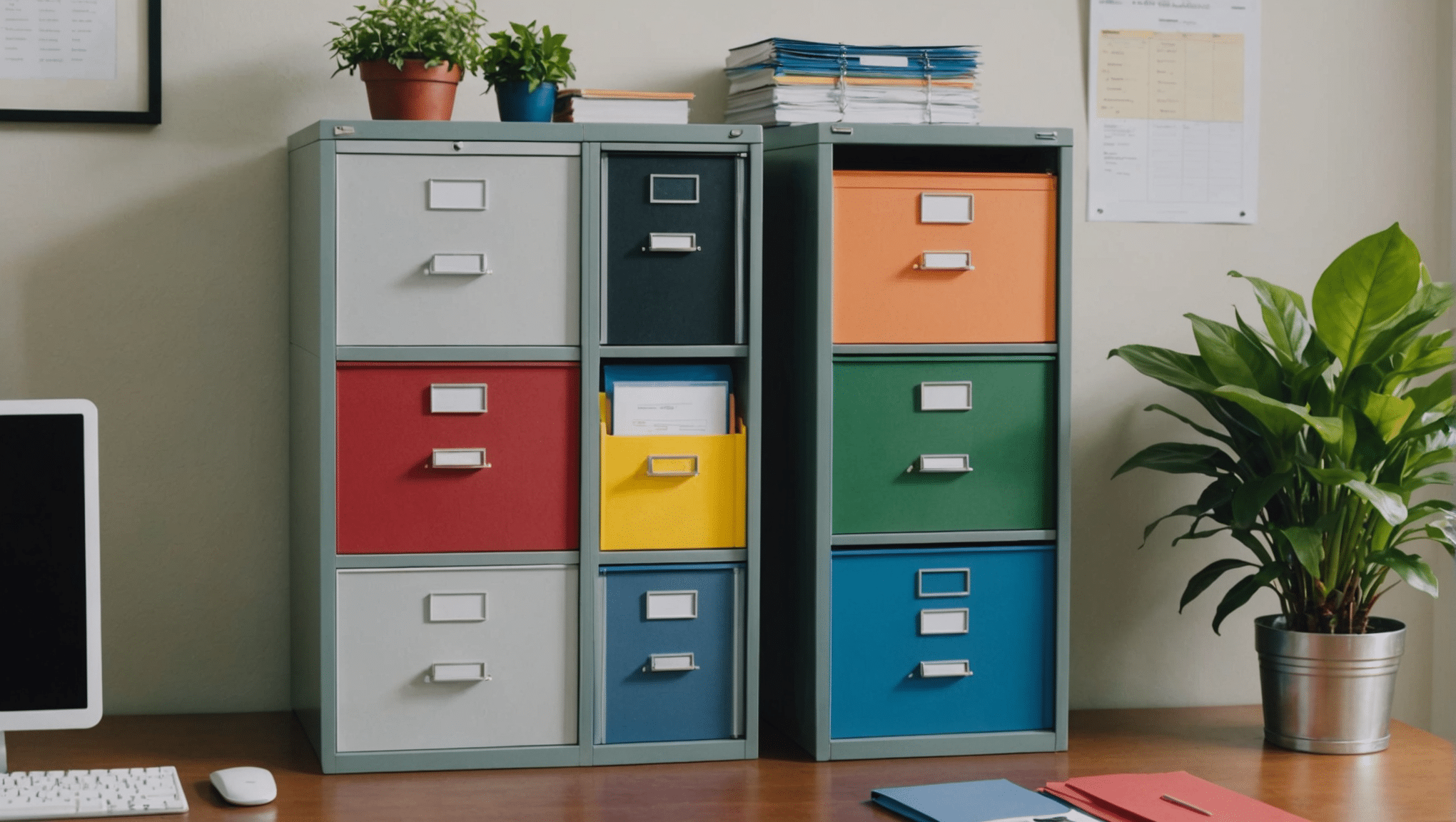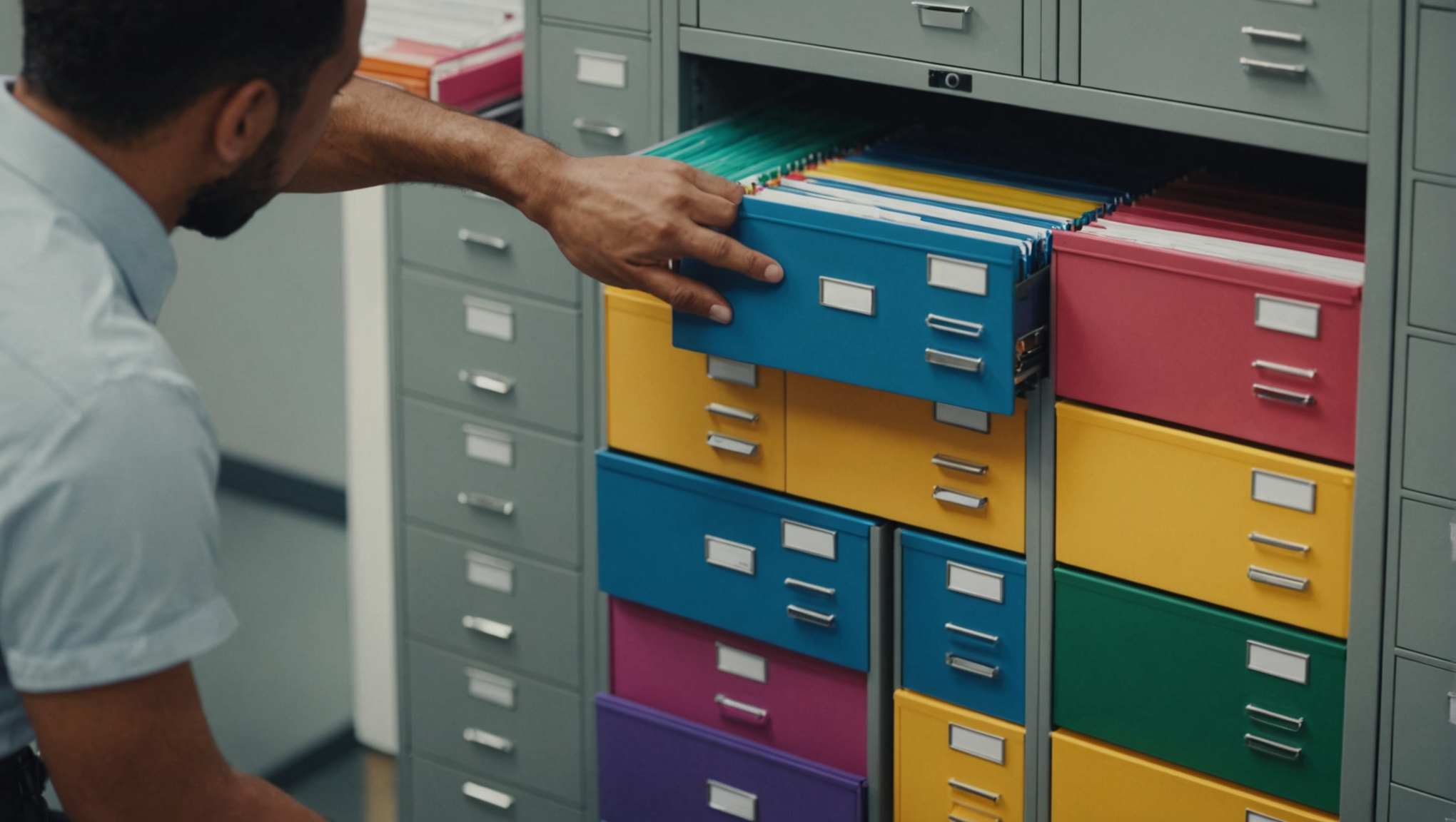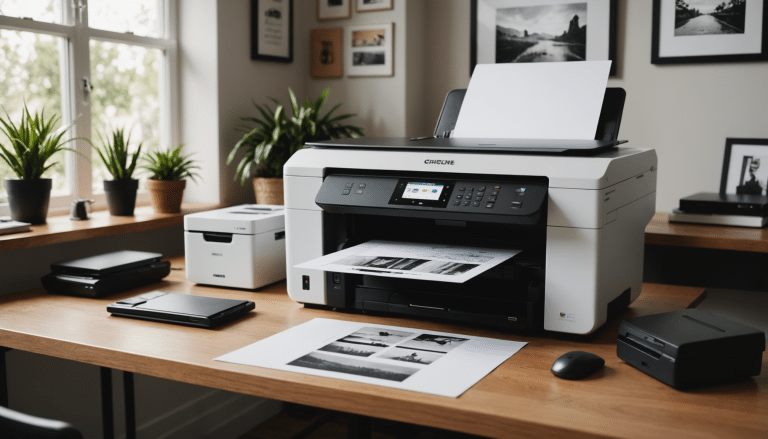
Revamp Your Space: How to Organize a Filing Cabinet
Discover EFFICIENT file cabinet organization strategies to streamline your workspace and BOOST productivity.
An organized office filing cabinet is key to maintaining efficiency and reducing stress in any workspace. Proper organization allows for quick access and effective management of documents, directly addressing the need for clear, actionable guidance on setting up a filing system that works seamlessly.
What is the best way to organize a filing cabinet?
To effectively organize a filing cabinet, categorize your documents into clearly labeled folders, use color-coding for easy access, and adopt a consistent filing system, either alphabetical, chronological, or thematic, to ensure that every document is easy to find and manage.
Essential Tips for Filing Cabinet Organization
- Use color-coded folders to quickly identify document types.
- Label each folder and drawer for effortless navigation and retrieval.
- Implement hanging file systems to maximize space and accessibility.
- Regularly purge outdated documents to maintain a streamlined system.
- Integrate digital filing solutions to enhance backup and recovery.
- Arrange documents alphabetically, by topic, or importance based on usage.
- Maintain a routine to reorganize and update your filing system periodically.

Choosing the Right File Folders
When diving into the world of cabinet organization, selecting the right file folders is your first step to victory over clutter. Think of file folders as the unsung champions of document organization. Whether you opt for vibrant hanging folders or classic manila tabs, each type has its superhero trait in fighting the chaos of disorganized paper piles.
Consider the type of documents you’re dealing with. For bank statements or insurance papers, sturdy file folders are a must. Meanwhile, hanging folders are perfect for those who frequently access their documents; they slide smoothly and can be labeled easily, turning your file cabinet into a well-oiled machine.
Don’t shy away from color-coding your folders either. By assigning colors to different categories—like blue for bills and green for personal documents—you can locate any file in a flash. This isn’t just about making your cabinet prettier; it’s about turning frantic searches into a serene stroll through well-organized memories and records.
Designing an Effective Filing System
An efficient filing system isn’t built on hope and drawer space alone—it requires a strategic approach. Start by deciding if an alphabetical, topical, or chronological setup works best for your cabinet’s brain—the filing system. Alphabetical arrangements are great for quick document retrieval, while topical groupings might suit those with varied interests or business needs.
Labels are the secret sauce in your organisational feast. They help avoid the dreaded document pile-up that can transform any drawer from a ‘file cabinet’ to a ‘file catastrophe’. Use clear, bold labeling on each folder and segment of your cabinet to ensure everything has its designated spot, making retrieval a no-brainer.
The drawer isn’t just a place; it’s a sanctuary for your important documents. Invest time in setting up your filing system right, and it will pay dividends in saved time and reduced stress when you need to find that elusive birth certificate or tax return. Always remember, a little planning goes a long way in the world of filing!
Utilizing Hanging File Systems
Hanging file systems are the acrobats of the filing cabinet world. They jump at your command, swinging out to present the exact document you need at a moment’s notice. If your filing cabinet isn’t already equipped with them, consider this an intervention for your organisational health.
With hanging files, you can maximize the usable space in each drawer. They’re designed to hang side by side with no wasted space, which means more room for your documents and less for clutter. Hanging files are also incredibly versatile—you can swap them out, move them around, and label them with ease.
To really enhance your file management, pair hanging files with dividers and sub-folders. This setup not only categorizes your documents more efficiently but also protects them better. It’s like giving each paper its own little room in a vast document hotel, where everything is tidy and accounted for.
Maintaining Your Filing Cabinet
Organising a filing cabinet is not a one-and-done deal; it requires ongoing vigilance to avoid relapse into chaos. Schedule regular “purge” days to review and declutter your folders. This will help you get rid of outdated documents and make room for new ones, ensuring that your filing system doesn’t become a historical archive of irrelevant papers.
It’s essential to stay disciplined with your filing habits. Always return documents to their designated spots and resist the temptation to stuff papers into the nearest available folder. Think of your filing cabinet as a garden that needs weeding—regular care will keep it functional and beautiful.
Don’t underestimate the power of a good clean-up. A clutter-free file cabinet isn’t just pleasing to the eye; it makes your brain feel better too. Clearing out unnecessary files can be a therapeutic exercise, one that refreshes your space and your mind, readying you for more efficient workdays ahead.
Innovations in Filing: Digital Options
In the digital age, physical files aren’t the only way to store your documents. Digital filing options have revolutionized the way we think about storing our information, offering backup and security that traditional cabinets can’t match. Introducing software solutions for document management can complement or even replace the need for physical storage.
Consider the benefits of scanning critical documents and storing them in cloud services. This not only saves space in your physical cabinet but also provides an added layer of disaster recovery. Programs like Google Drive or Microsoft OneDrive can serve as your digital file cabinet, accessible from anywhere and always organized.
If you’re ready to reduce your reliance on physical storage, explore online platforms and software that help manage documents efficiently. Embracing these digital options can free up room in your office and in your filing system, allowing you to focus on more important tasks at hand, like growing your business or simplifying your home life.
| Type of File Folder | Material | Best Use |
|---|---|---|
| Hanging Folders | Plastic Coated | High-frequency Access |
| Manila Folders | Heavy-duty Paper | Archiving Documents |
| Accordion Folders | Durable Plastic | Multipurpose Organization |
| Labeled Dividers | Cardstock | Sub-categorizing within Drawers |
Conclusion
At Viking, we are committed to enhancing your workplace efficiency. Organizing your filing cabinet effectively can drastically improve productivity and streamline your office operations, embodying our passion for smart, cost-effective workplace solutions.
For those environmentally conscious, consider our sustainable options for file storage. Choosing Viking means investing in a workspace that is not only efficient but also responsible, aligning with our dedication to bettering office environments everywhere.
Frequently Asked Questions
What are the best file folders to use in a filing cabinet?
To maximize cabinet organization, opt for hanging file folders, which allow for easy labeling and can be swiftly accessed. These folders help keep documents flat and prevent them from curling at the edges, ensuring your filing cabinet remains orderly and your documents are well-preserved.
How should I categorize documents in my filing cabinet?
Organize your filing cabinet by categorizing documents alphabetically, by importance, or by use frequency. For business, use a filing system that separates client information, financial documents, and operational paperwork. In personal cabinets, sort items like insurance papers, bank statements, and personal records into distinct sections.
What is the best way to maintain an organized filing cabinet?
Regular maintenance of your filing cabinet is crucial. Set a schedule to periodically review and purge outdated or unnecessary documents. This decluttering process helps prevent clutter buildup and ensures that your filing system remains up-to-date and functional, making document retrieval quicker and more efficient.
How do digital solutions complement physical filing cabinets?
Digital solutions can complement physical filing cabinets by providing backups and easier access to documents through cloud storage and management software. Scanning important papers and storing them digitally reduces the risk of loss and damage, while also decluttering physical space and simplifying document retrieval tasks.












